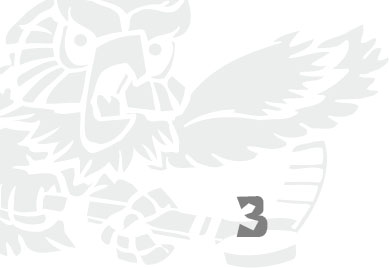
I’ll get her back–don’t you worry.”
Nish might have been talking to himself. He was flat on his back, wearing only his boxer shorts, his sleeping bag kicked off to the side and his pillow covered with candy wrappers: Tootsie Roll, Mars Bar, Mr. Big, Milky Way. In Nish’s opinion, a four-course meal.
The boys had woken early. There was so much going on during the Little Stanley Cup, it seemed there was no time left for sleeping. They’d been up until midnight watching the Canada Day fireworks on Parliament Hill–the greatest display of brilliant colour and raw noise that Travis had ever experienced–and this morning they had been roused at 7:30 to get ready for their first practice. It was, for the Screech Owls, even better than a game, for they were going to skate on the Corel Centre ice and use the same dressing room as the Ottawa Senators.
Travis lay in the big, army-style tent, half-listening to Nish ramble on about getting his revenge on Sam, and half-watching the sunlight play over the tent. The light seemed to pour through a thousand pinpricks in the canvas–yet it had rained during the night and they’d remained warm and dry.
“But how?” Andy finally asked Nish.
Travis winced. The worst mistake you could make with Nish was to lead him on. The others in the tent–Fahd, Jesse, Lars, and Dmitri–knew it too, but Andy had been unable to resist.
“I’m not sure yet,” Nish answered, then giggled softly to himself. “But it’ll be good, real good, I promise you that.”
Travis closed his eyes, not even daring to imagine what schemes were racing through his best friend’s twisted little brain.
The sun was now so strong on the tent, it seemed Travis’s eyelids had been spray-painted red from the inside.
It was already getting too hot–he could hardly wait to hit the ice.

Travis could never quite understand what Muck had against summer hockey. Muck always said summer was for other sports–baseball to improve your eye-hand co-ordination, soccer to help your footwork and passing, biking for conditioning–and claimed that the reason so many kids dropped out of hockey in their teenage years was that they were sick and tired of playing the game twelve months of the year. Perhaps Travis would one day agree with his coach, but not now.
He loved the way everything about summer hockey was backwards. In winter you came in to the warmth and shed bulky outdoor clothes; in summer you came in to the cool and put on bulky equipment. Travis liked the dressing up instead of dressing down. He liked that first step onto a fresh ice surface when he could kick once and just glide freely. He often thought that the first turn around the rink in summer must be as close as a kid can come to feeling like an astronaut stepping outside the spaceship: so heavily insulated, head helmeted, gravity and friction defied, his body drifting and soaring with the slightest effort.
Even better, the Owls were in a rink where NHL players had performed. Here, on this very ice surface, was where Alexei Yashin and Daniel Alfredsson and Marian Hossa had starred for the Senators. Here was where Jaromir Jagr had scored, where Patrick Roy and Dominik Hasek had kicked out the shots. And here, he suddenly remembered, was where Wayne Gretzky had played his final game ever in Canada. Because of that, it was a rink that belonged to Canadian history.
Mr. Dillinger was doing the best he could. He set out pylons and dumped a bucket of pucks, and he tried to talk like Muck and outline plays like Ty, but it wasn’t the same. Poor Mr. Dillinger, sweat beading on his bald head, could barely skate. He needed his stick on the ice for support, and when he tried to fire a puck into a corner so the power play could work on their cycling, he fell over onto one knee.
“Need some help out there?” a voice called from behind the bench.
Mr. Dillinger stood up, knocked the snow off his leg and stared over, not sure whether he was being laughed at or not.
A handsome young man was standing beside Data, who had pulled his chair up to the bench and was following the practice with a playboard on his lap. The man had short dark hair and was smiling–a nice smile, an inviting smile. He was holding up his skates, tied together at the laces, as if to suggest he be asked out on the ice.
Mr. Dillinger skated over, stopping so awkwardly he threw his big hip into the boards and sprung open the bench gate. He almost fell, catching himself at the last moment.
“What makes you think we need help?” Mr. Dillinger said, with as much dignity as he could muster.
The young man smiled again–his teeth flashing under the strong lights of the Corel Centre–and Mr. Dillinger was instantly smiling back, then laughing at himself.
“I’m Joe Hall,” the young man said, holding out his hand.